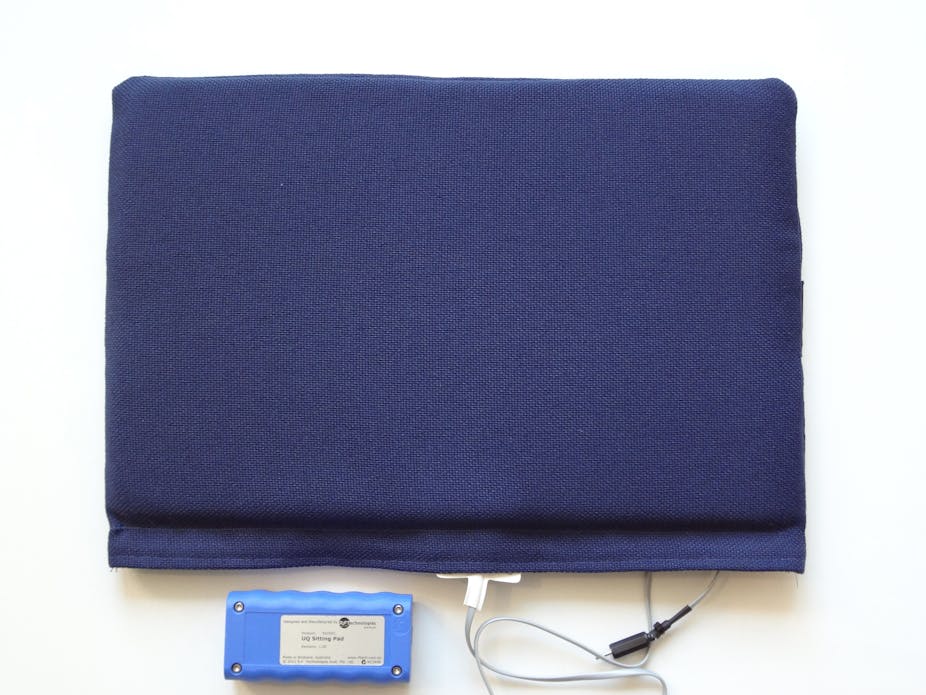Researchers have developed a new office chair “sitting pad” that sounds an alarm when its owner has been sitting too long.
Prolonged sitting can contribute to musculoskeletal problems such as back pain and RSI, as well as obesity, diabetes and even premature death.
The new device, invented by researchers from the University of Queensland, contains sensors that can detect how long a person has been sitting and activate a light and an alarm after a time frame selected by the user has been exceeded.
Quickly standing up and sitting back down again won’t satisfy this device – the user must be away from the chair for a pre-set amount of time or the alarm will restart.
“We think of it as the pedometer of sitting,” said lead researcher Gemma Ryde, a PhD student at the UQ School of Human Movement Studies.
“At the moment there’s a whole new field of research saying sitting is detrimental to our health and the workplace is where we do most of our sitting,” she said.
“We know that prolonged sitting affects your waist circumference, the amount of fats floating around in your blood stream and diabetes risk. If you sit more, you are more likely to die younger.”
Employers worried that the devices will drive down worker output need not fear the sitting pad.
“What research has found is that people who take more breaks are actually more productive,” said Ms Ryde.
The team has produced 40 sitting pads and is investigating commercialisation opportunities, as well as fine-tuning the design.
“I would like to change it so it’s locking the computer screen if you sit too long,” she said.
Dr Alicia Thorp from Baker IDI’s Physical Activity Research Unit, who was not involved in the research, welcomed the invention of the sitting pad.
“It’s great this sort of device has been created. Most people sit in the workplace and having a device that can give real time prompts to people to break up their sitting is really important and to date we haven’t had the devices to do that,” she said.
A recent study by Dr Thorp and others showed that breaking up sitting for two minutes every 20 min can improve glucose and insulin responses after a meal, thereby driving down the risk of diabetes and heart disease.
“Sitting is bad for our health and it’s important we break up our sitting time. People aren’t always conscious of how long we are sitting,” she said.
Another study by Dr Thorp and her team found that of 193 Melbourne workers were spending around three quarters of their work day sitting.

